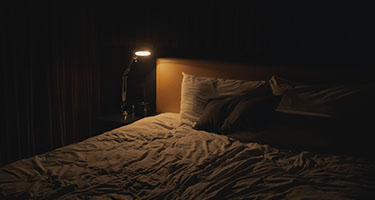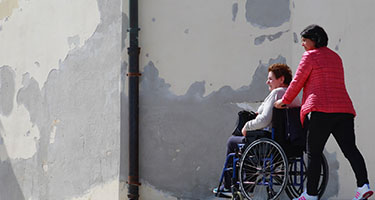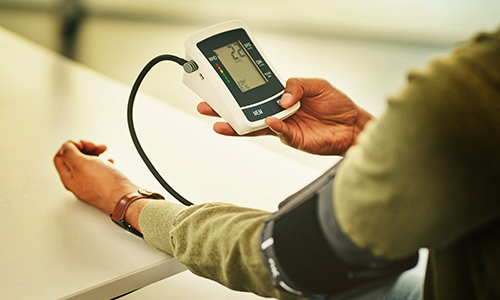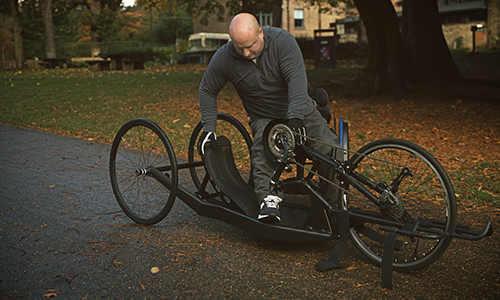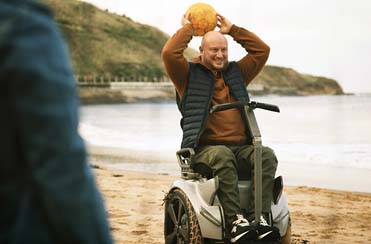Sleep apnoea is a disorder that can cause you to stop breathing for a short period while you are asleep and can lead to serious medical consequences. Unfortunately, sleep apnoea is very common among those with spinal cord injuries and is one of the most reported spinal cord injury sleep problems.
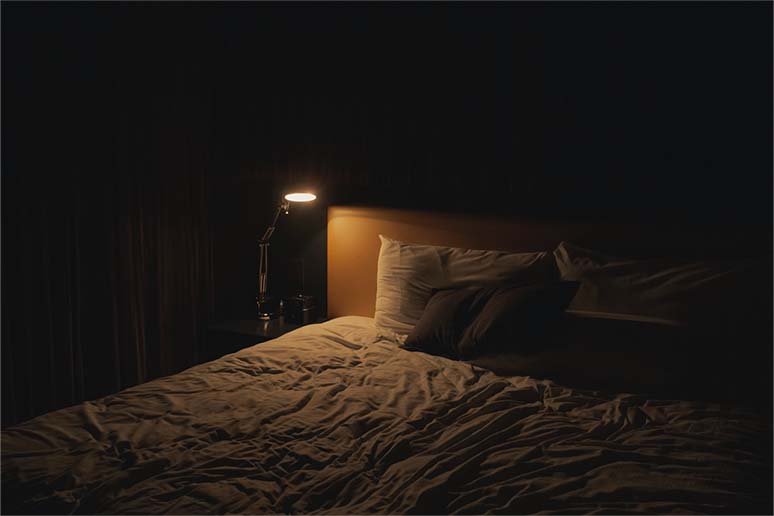
Image credit: Jp Valery
Research has shown that up to 80% of people with a spinal cord injury have sleep apnoea. Unfortunately, due to its impact on breathing and the resulting dangerous drops in oxygen levels, people with sleep apnoea are susceptible to the following:
- A decline in mental abilities
- The onset of cardiac and pulmonary diseases,
- The potential for harmful mishaps or vehicle accidents due to extreme daytime sleepiness.
Why is sleep apnoea common after a spinal cord injury?
Key reasons why sleep apnoea can manifest itself after a spinal cord injury include:
Sleeping on your back
Many people with a spinal cord injury must sleep entirely or primarily on their back throughout the night. This position makes sleep apnoea more likely to occur and persist.
Weakened breathing muscles
Your spinal cord injury may have impacted the muscles that control breathing. Breathing stops with sleep apnoea because of the soft palate and tongue block airways. Weakened breathing muscles make it even harder to counter that blockage.
Altered breathing
Your spinal cord injury may have permanently altered your breathing mechanics, such as an inward collapse of your rib cage. This can impact diaphragm contractions, causing an airway blockage.
Medications
Certain medications may also weaken your respiratory response to sleep apnoea. Drugs like Baclofen relax airway muscles, making them less effective in countering blockage.
Obesity
Unhealthy body weight can contribute to sleep apnoea. People with spinal cord injury often struggle with managing and losing weight. You can reduce this by focusing on nutrition and taking up wheelchair sports, such as wheelchair tennis or adaptive water sports.
If you would prefer to ease yourself in gradually, doing daily wheelchair exercises is ideal for building your confidence and enjoying the benefits of exercise after an SCI.
How to treat sleep apnoea due to a spinal cord injury
If you’ve been diagnosed with sleep apnoea through testing or a sleep study, your medical team will develop a treatment plan that may include continuous positive airway pressure (CPAP) therapy. This involves wearing a mask attached to a bedside pump that provides pressurised air.
CPAP devices
CPAP devices help keep your upper airway from restricting while breathing. They can help minimise sleep apnoea, but using one takes patience and an adjustment period.
BiPAP
Another similar mask/pump machine is bi-level positive airway pressure, or BiPAP, prescribed for those with weakened breathing muscles.
Mouth appliances
A more straightforward option is using an oral appliance that you wear at night. These mouth appliances pull your jaw forward and tug your tongue to facilitate a clearer upper airway.
Change your sleeping position
An even simpler option may be sleeping on your stomach to help promote better breathing. Other sleep positions can help alleviate sleep apnoea due to a spinal cord injury; consult with a medical professional to determine whether these are suitable for you.
Surgery
Finally, there are surgical options such as Uvulopalatopharyngoplasty (UPPP). This procedure removes excess tissue obstructing your airway and lengthens your jaw to pull the tongue forward.
To find the right treatment plan, work closely with your medical team. Sleep apnoea is a serious condition that can adversely impact your quality of life and may lead to other medical ailments, so be sure to seek medical attention if you or your caregiver suspect this sleep disorder.
Do you have further questions? Get your SCI questions answered by the Navigator Team by sending us a message or contacting us on 0800 373 858.



